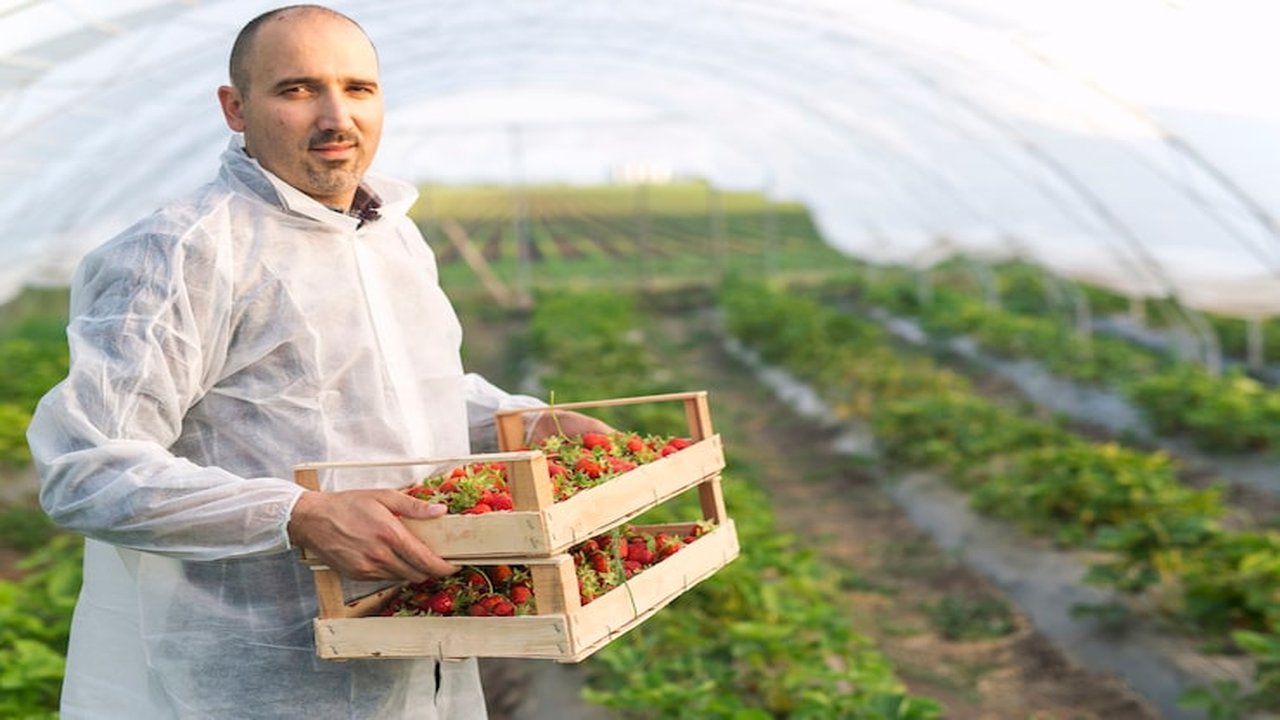 Amidst the climate crisis, supporting farmers emerges as a pivotal solution. A recent summit highlighted the pressing challenges faced by agricultural communities and the innovative strategies being embraced to combat climate change. From regenerative farming practices to agrivoltaics, the article delves into the crucial role farmers play in driving sustainability. Join us as we explore the key insights and partnerships shaping the future of agriculture in the fight against climate change.
Amidst the climate crisis, supporting farmers emerges as a pivotal solution. A recent summit highlighted the pressing challenges faced by agricultural communities and the innovative strategies being embraced to combat climate change. From regenerative farming practices to agrivoltaics, the article delves into the crucial role farmers play in driving sustainability. Join us as we explore the key insights and partnerships shaping the future of agriculture in the fight against climate change.
Regenerative Agriculture as a Climate Solution
Regenerative agriculture has emerged as a critical strategy in combating the climate crisis, with a focus on enhancing soil health and biodiversity. By implementing practices such as cover cropping, crop rotation, and reduced tillage, farmers can sequester carbon, improve water retention, and promote ecosystem resilience. This approach not only benefits the environment but also enhances the long-term viability of agricultural operations. Whole Foods Market has been a proponent of regenerative agriculture, emphasizing the importance of sustainable farming practices in ensuring the availability of high-quality, ethically sourced produce for consumers.
The adoption of regenerative agriculture is not without its challenges, as highlighted by the need for financial investments to transition to these practices. Despite the cost implications, the potential benefits in terms of soil health, crop yields, and environmental sustainability make it a compelling proposition for farmers and stakeholders across the supply chain. Collaborative efforts involving government support, industry partnerships, and consumer demand for sustainably produced goods are essential in driving the widespread adoption of regenerative agriculture practices.
Agrivoltaics for Sustainable Energy and Agriculture Integration
Agrivoltaics, the innovative practice of combining solar energy generation with agricultural activities on the same land, presents a unique opportunity to address both energy and food production needs sustainably. By harnessing solar power while maintaining agricultural productivity, farmers can diversify their income streams and contribute to renewable energy generation. Companies like Whole Foods Market have recognized the potential of agrivoltaics in promoting environmental sustainability and supporting local farming communities.
The dual-purpose nature of agrivoltaics not only reduces land use conflicts between agriculture and solar development but also enhances the resilience of farming operations in the face of climate change. Through strategic partnerships with renewable energy firms and agricultural organizations, the integration of solar panels with farming activities can create synergies that benefit both sectors. As the demand for clean energy and locally sourced food continues to grow, agrivoltaics represents a promising model for sustainable land use practices.
Collaborative Partnerships for Agricultural Resilience
The success of sustainable agriculture initiatives hinges on the strength of collaborative partnerships that bring together diverse stakeholders to address common challenges. From government agencies and non-profit organizations to regional planning commissions and farming associations, cross-sector collaboration is essential in providing the necessary support for farmers to adopt innovative practices. Whole Foods Market has been actively engaged in fostering partnerships that promote sustainable sourcing, ethical farming practices, and community resilience.
By leveraging the expertise and resources of various partners, farmers can access critical support in transitioning to sustainable farming methods, improving soil health, and enhancing overall agricultural productivity. These partnerships not only facilitate knowledge exchange and capacity-building but also create opportunities for shared investments in infrastructure, research, and market access. As the agricultural sector continues to evolve in response to climate change and consumer preferences, collaborative partnerships will play a pivotal role in driving positive outcomes for farmers and the environment.
Consumer Education and Demand for Sustainable Products
Consumer awareness and demand for sustainably produced goods are driving significant shifts in the agricultural industry, prompting companies like Whole Foods Market to prioritize transparency, ethical sourcing, and environmental stewardship. As consumers become more conscious of the impact of their purchasing decisions on the planet and society, there is a growing emphasis on supporting brands that prioritize sustainability and social responsibility. This trend is reshaping the food industry landscape and influencing the way companies source, produce, and market their products.
In response to changing consumer preferences, businesses are increasingly investing in initiatives that promote sustainable agriculture, reduce carbon footprints, and support local farming communities. By aligning their values with those of environmentally conscious consumers, companies can build trust, loyalty, and brand reputation while contributing to positive social and environmental outcomes. As the demand for sustainable products continues to rise, companies that prioritize ethical sourcing and transparency are well-positioned to meet the evolving needs of the market and drive meaningful change in the global supply chain.
Conclusion
In a world grappling with the urgent need for sustainable solutions, farmers stand at the forefront of combating climate change through regenerative agriculture and innovative practices like agrivoltaics. As Whole Foods Market champions ethical sourcing and environmental stewardship, collaborative partnerships and consumer demand for sustainable products are reshaping the agricultural landscape. The future of agriculture lies in embracing these transformative strategies, fostering resilience, and driving positive outcomes for both farmers and the planet. Let us all play a role in supporting sustainable farming practices and building a more resilient and ethical supply chain for generations to come.